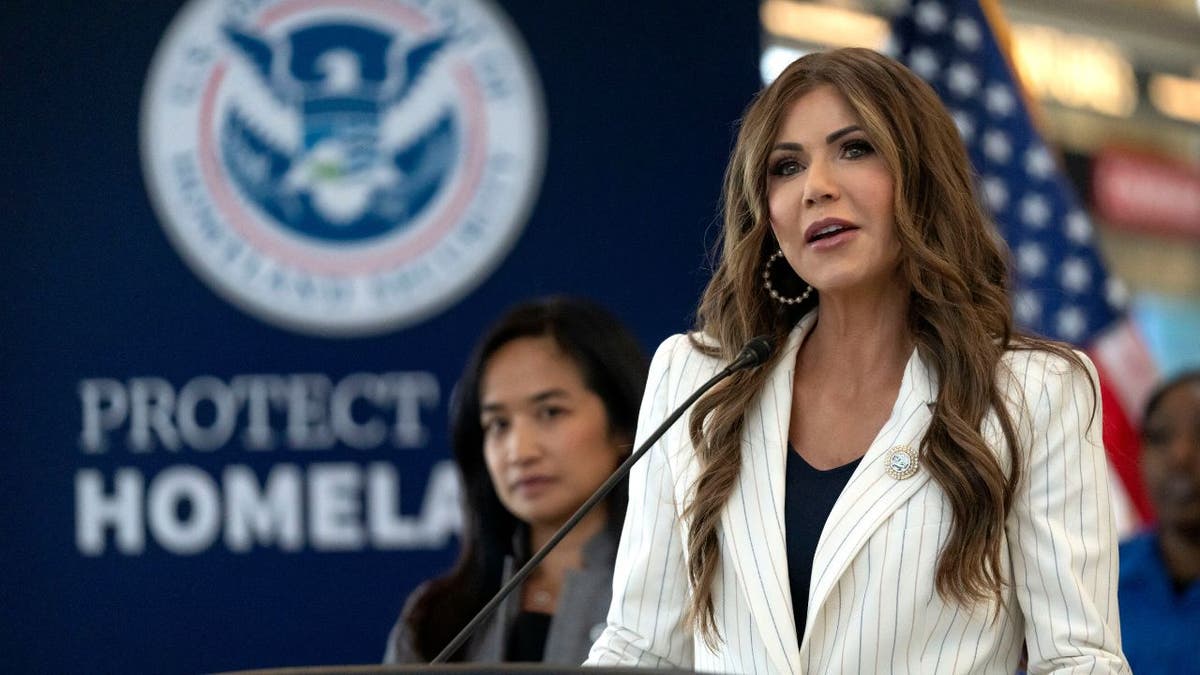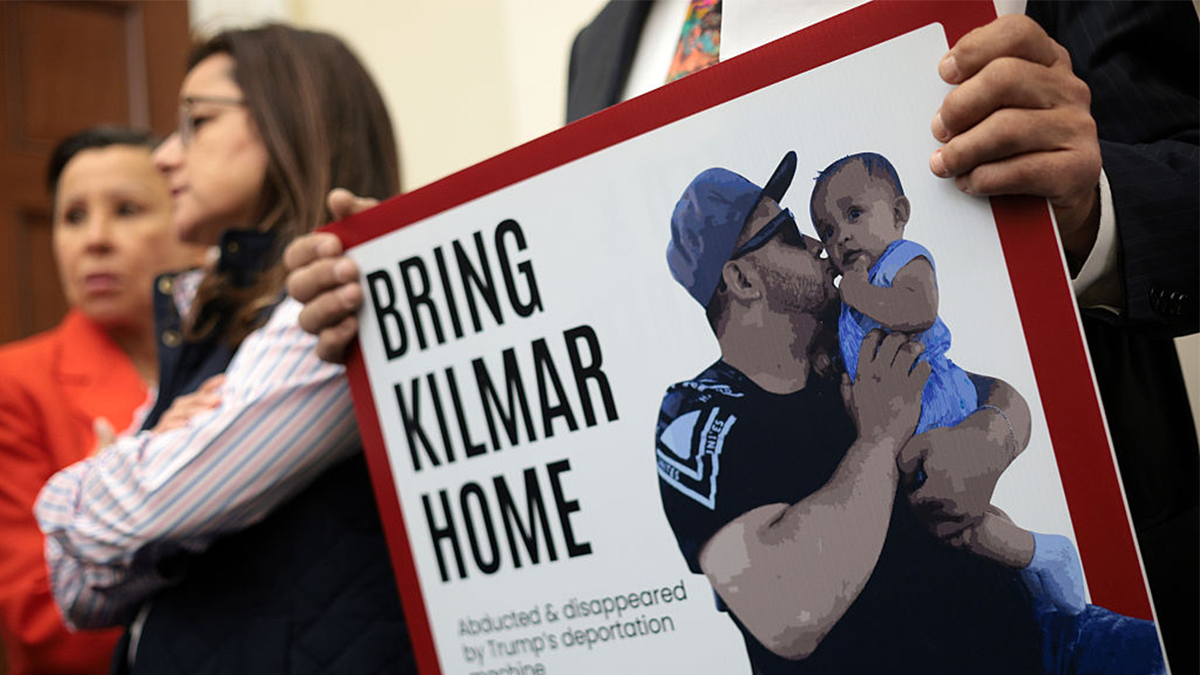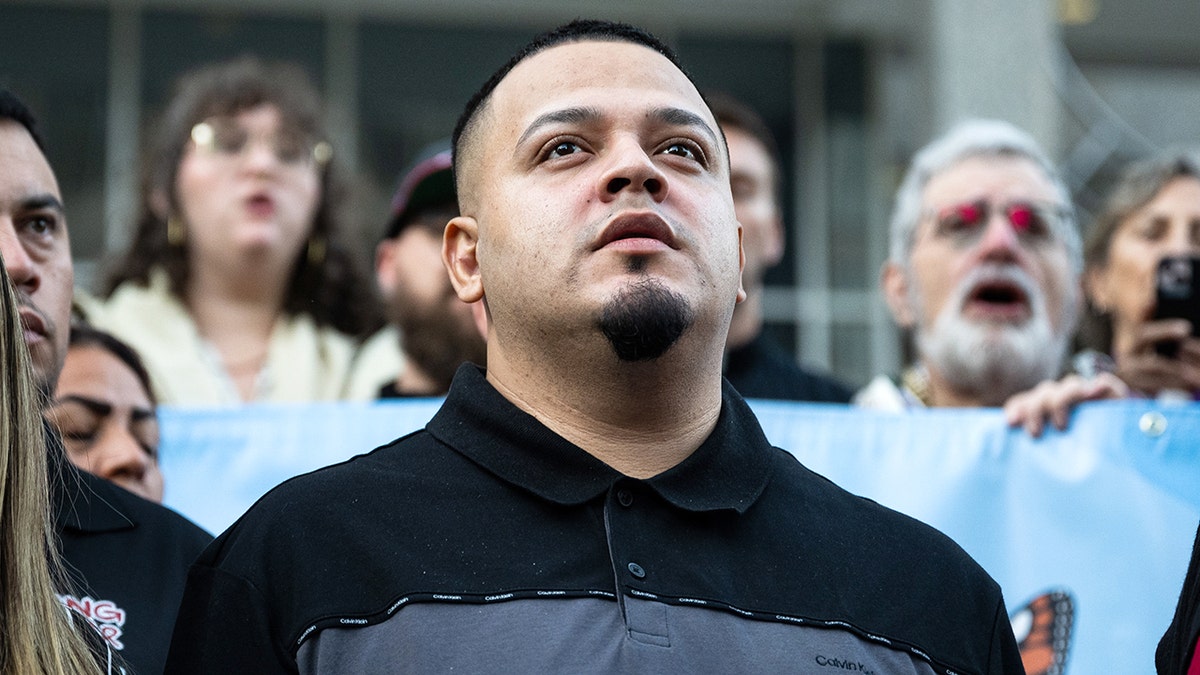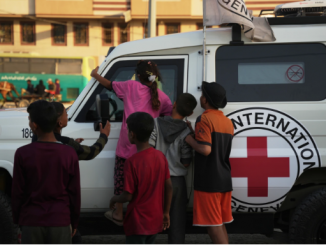
Published September 7, 2025
DHS mocked Abrego Garcia on social media, saying, ‘Homie is afraid of the entire western hemisphere’
The U.S. Department of Homeland Security has told Kilmar Abrego García — a Maryland father who was deported to El Salvador earlier this year and later returned to face federal human-smuggling charges — that it now plans to remove him to the tiny African kingdom of Eswatini (formerly Swaziland). The decision, and the blunt tone in which the agency publicized it, have inflamed a debate over due process, prosecutorial tactics and how the government uses third-country deportation agreements.
What the government said
ICE and the Department of Homeland Security notified Abrego García in writing that, after he objected to removal to other countries (including Uganda), the “new country of removal is Eswatini, Africa.” The agency’s message pointedly noted that Abrego García claimed fear of persecution in “at least 22 different countries,” and DHS later reposted the notice on social media with the caption, “Homie is afraid of the entire western hemisphere.”
Officials have defended the move as compliance with a court-ordered removal, saying an immigration judge ordered him removed and ICE will carry out that order. The government also contends Abrego García has ties to criminal activity — including allegations of gang membership and human trafficking — claims his attorneys strongly deny.
The human story and legal context
Abrego García, originally from El Salvador, has lived in the U.S. for years and is the father of a U.S.-citizen child. He was mistakenly deported to El Salvador earlier in 2025, then returned to the United States to face charges after immigration and criminal proceedings unfolded. He is currently detained in Virginia while contesting renewed removal orders and pursuing asylum claims. His lawyers say the government’s selection of Eswatini — a country to which he has no ties — is arbitrary and intended to pressure him into accepting a plea deal. His legal team also says there is no admissible evidence tying him to MS-13 or to the other serious crimes the administration has alleged.
Federal judges have already intervened at times: a judge blocked a planned deportation to Uganda after finding credible fear claims that required further review. Abrego García is simultaneously defending criminal charges of transporting undocumented migrants; his lawyers say the government offered to send him to Costa Rica in exchange for a guilty plea — an offer they say he refused.
Why Eswatini?
Eswatini is a small, absolute-monarchy kingdom in southern Africa roughly the size of New Jersey. In recent years the U.S. government has used agreements with several countries — including Rwanda, Uganda and South Sudan — to receive particular deportees. Why Eswatini was selected in this case is not fully explained in the public record; journalists and advocates say the choice is notable because Abrego García has no connection to that country, and because it underscores an expanding use of third-country removal options by U.S. immigration authorities.
Reactions and politics
The case has quickly become a political flashpoint. Supporters of Abrego García and immigrant-rights groups describe the deportation plan as cruel and possibly retaliatory — pointing to the agency’s social-media tone and the earlier erroneous deportation to El Salvador. Some members of Congress and advocacy groups have criticized DHS for its public messaging. On the other hand, DHS officials and allies frame the move as enforcement of immigration law against an individual they describe as dangerous. High-profile statements from administration officials have amplified both the legal and political dimensions.

Homeland Security Secretary Kristi Noem speaks during a news conference on Tuesday, July 8, 2025, at Reagan National Airport in Washington. (Mark Schiefelbein/AP Photo)

A member of the Congressional Hispanic Caucus holds a picture of Kilmar Abrego Garcia during a news conference. (Getty Images)

Kilmar Abrego Garcia, a Maryland man who was deported to El Salvador earlier this year, and his wife Jennifer Vasquez Sura, left, arrive for a check-in at the Immigration and Customs Enforcement (ICE) field office in Baltimore, Maryland, US, on Monday, Aug. 25, 2025 (Graeme Sloan/Bloomberg via Getty Images)
 Implications
Implications
1. Legal Precedent for Third-Country Deportations
If DHS succeeds in removing Abrego García to Eswatini, it could set a precedent for broader use of third-country deportations, even when the individual has no ties to the destination country. This would expand government flexibility but raises questions about whether such removals align with international asylum obligations.
2. Due Process and Judicial Oversight
The case spotlights tensions between immigration enforcement and constitutional protections. Judges have already stepped in to block deportations (e.g., to Uganda). If courts view DHS’s choice of Eswatini as arbitrary or retaliatory, it could lead to stronger judicial limits on removal discretion.
3. Impact on Plea Bargaining in Immigration-Linked Criminal Cases
Using deportation destinations as leverage in plea negotiations — as alleged by Abrego García’s attorneys — risks being seen as coercive. If this pattern is confirmed, it could face constitutional challenges and scrutiny from Congress.
4. Diplomatic and International Ramifications
Eswatini’s acceptance of a deportee with no prior ties may raise diplomatic questions. Other countries may hesitate to enter or continue third-country deportation arrangements if they see cases that appear politically motivated or inconsistent with human rights norms.
5. Messaging and Public Trust in Immigration Agencies
DHS’s social-media post mocking Abrego García has already drawn criticism. This risks eroding public trust in the fairness and professionalism of immigration enforcement — especially when individual liberty and family unity are at stake.
6. Political Flashpoint in Immigration Policy
The case adds fuel to the broader national debate over immigration. Supporters of strict enforcement view it as necessary action against someone allegedly tied to crime. Critics see it as overreach, arbitrary punishment, and a misuse of executive power. It is likely to be cited in upcoming political battles over asylum reform, deportation priorities, and agency oversight.
 Overall Takeaway:
Overall Takeaway:
The case of Kilmar Abrego García underscores the complexities and controversies of U.S. immigration enforcement in 2025. By proposing to deport him to Eswatini — a country with which he has no personal connection — DHS has highlighted both the breadth of government authority and the legal and ethical tensions that arise when enforcement pushes the boundaries of due process.
For immigration hardliners, this represents a firm stance against someone alleged to have criminal ties. For critics, it illustrates how deportation policy can appear arbitrary, coercive, and politically charged. With courts already stepping in, and advocacy groups amplifying concerns, the final outcome will not only determine Abrego García’s fate but may also shape the future scope of third-country deportations, plea bargaining practices, and public trust in immigration institutions.
In short, this unusual case is more than a personal saga — it is a test of how far the U.S. can, and should, go in redefining deportation strategy in an era of heightened political and legal scrutiny.
SOURCES: FOX NEWS – ICE tells Kilmar Abrego Garcia he’ll be deported to tiny African country
ZEROHEDGE – U.S. Tells “Maryland Father”: No Asylum, Next Stop Eswatini
THE GATEWAY PUNDIT – DEVELOPING: MS-13 Gang Member Kilmar Abrego Garcia to be Deported to African Country of Eswatini
THE HILL – Kilmar Abrego Garcia threatened with deportation to Eswatini





Be the first to comment